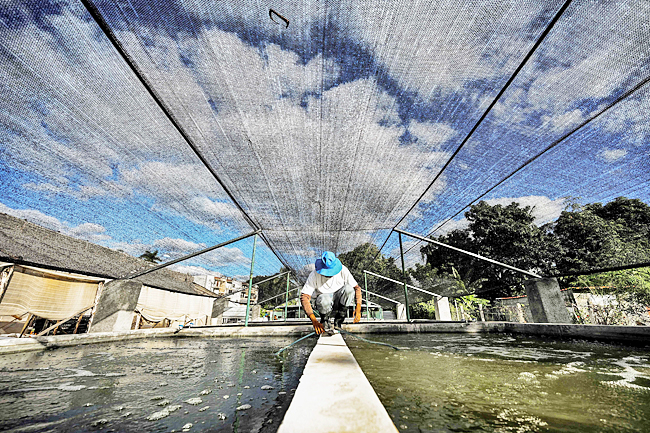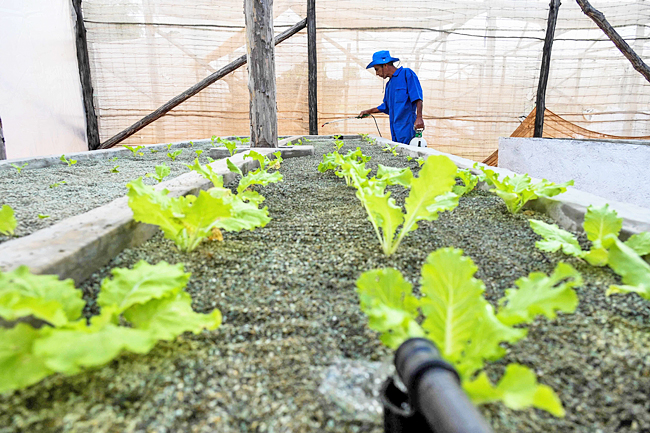AFP – Over the last two years, Cuban entrepreneurs Jose Martinez and Joel Lopez have used an innovative technique to raise 24 tonnes of tilapia – a critical source of food for an island nation surrounded by water but not enough fish.
The pair, lawyers both aged 35, rely on a symbiotic method called aquaponics in which waste from the captive fish feeds plants grown not in soil but in pond water filtered through their roots to be reused for the tanks.
Two years ago, Martinez and Lopez started their business in Barbosa, a suburb of the capital Havana, with a government loan and some private savings. They built 12 ponds of 20 cubic metres each. In their ponds, the tilapia need six months to grow to the required size of 400 grammes for human consumption.
“We sell them (the fish) here in the community as we are a local development project, but part of the production will be sold in the tourism sector so that we can earn the money we need to continue with the project,” said co-owner Martinez of the enterprise called JoJo Aquaponic.
When they have completed building their three greenhouses, the pair also hopes to be able to grow 36 tonnes of vegetables at a time. Projects like these are increasingly important for feeding Cuba’s 11 million inhabitants, under United States sanctions for the last six decades. The communist nation is experiencing its worst economic crisis in three decades, with shortages of food, medicine and fuel.


“Our idea is to bring this knowledge to everyone who wants to produce fish,” said Lopez. “It is a viable and sustainable solution.”
Before the economic crisis of the 1990s brought on by the disintegration of the Soviet Union, an important ally, Cuba had a fleet that captured some 100,000 tonnes of fish in international waters every year – most of it sold at home at subsidised prices.
Its own coast is shallow and low in nutrients, according to experts, and overfishing has further diminished stocks around the island. Another hurdle is a growing shortage of engines and fuel for fishing boats, Food Industry Minister Manuel Sobrino said on local television recently.
For the last three years, Cuba has taken in less than 12,000 tonnes of fish per year.
Last year, the country sold seafood worth some USD54 million to clients abroad as it desperately needs foreign currency. Fish cultivation has also taken a hit. Official figures show that between 2018 and 2022, production of catfish – another freshwater species raised in captivity – dropped from 6,286 to 1,355 tonnes.
Agriculture yields in general fell by as much as 35 per cent from 2019 to 2023 in Cuba.
In July, Deputy Prime Minister Jorge Luis Tapia proposed that Cubans start cultivating their own fish at home – a practise that was widespread in the desperate times of the 1990s. The suggestion was met with incredulity.
As the government scrambles to address the food shortage, it approved a law in 2019 to allow fishermen to sell their catches directly, without state intervention.
Small businesses have increasingly been buying fish from individual fishermen but with the mark-up, ordinary Cubans cannot afford to buy it from them either.






